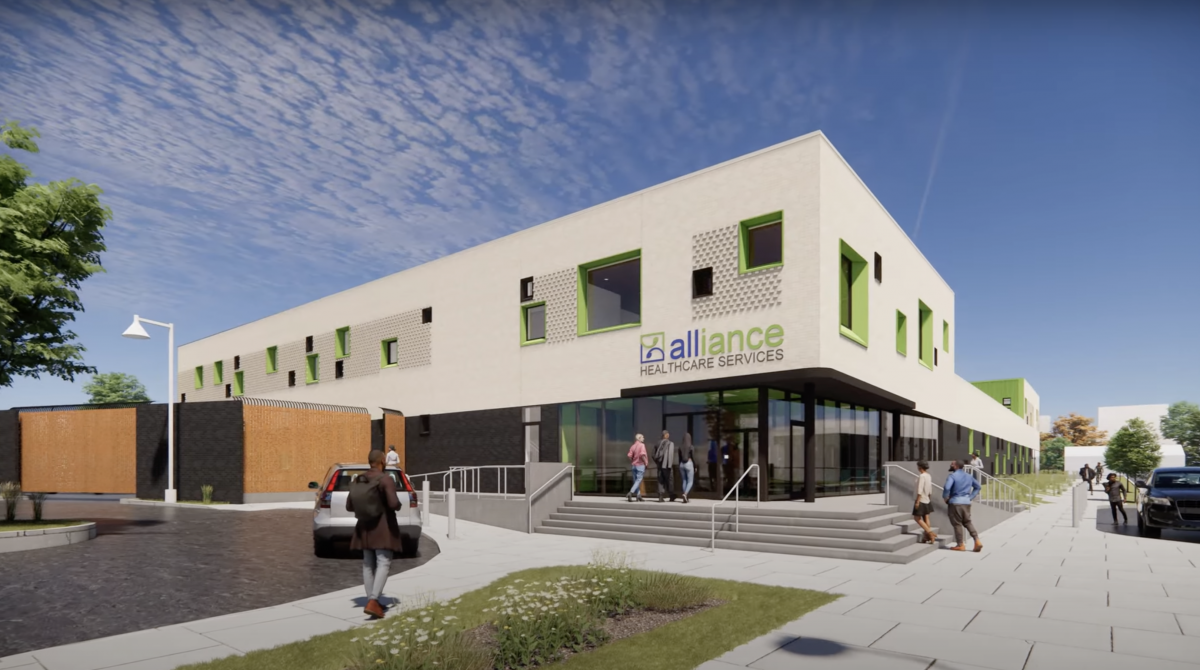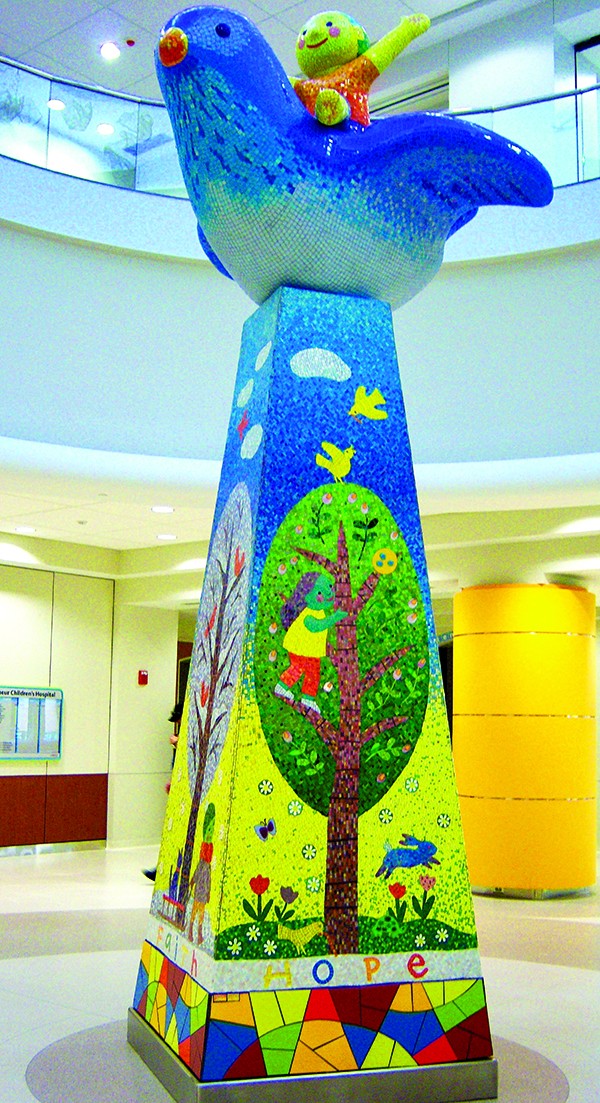Officials were slated to break ground on a $34-million crisis wellness center on Broad Avenue Friday. The 55,000 square-foot building will expand the reach of Alliance Healthcare Services, the largest crisis services provider in the state. The Tennessee Department of Health is contributing $7 million to the new center.
The center will raise the number of Alliance’s beds from 27 to 45. Alliance will also add walk-in appointments for adults and be able to service children and families for the first time.
Alliance works with police and fire departments across Shelby County to help divert those with mental illness from the criminal justice system and into proper treatment. Over a 12-month period, Alliance says its team helps save about $165 million in health care and jail costs.
The center is expected to open in December 2024.
Alliance CEO Laurie Powell gave us more details about the project. — Toby Sells
Memphis Flyer: What services do you offer at Alliance Healthcare Services?
Laurie Powell: We’re the full continuum of behavioral health. We’re a [nonprofit] and we were incorporated in 1973. So, this is our 50th year.
We now have 19 locations, including our outpatient clinic, our housing for those with mental illness, our crisis operation, our emergency-room, and jail-diversion programs. We have over 450 employees right now and we’re growing.
Tell me about the new crisis center. Where did the idea come from? Why is it needed?
We’ve been providing crisis services for adults 18 and over since 2008. That program has really grown. We have 120 employees for just that operation. Our crisis operation is on the second floor of the Memphis Mental Health Institute (MMHI). The state donated that space to us and now we need our own space, because we’ve outgrown it. We serve 13, 000 individuals in that program alone.
And growing, right?
Yes, from service and partnerships we’ve developed over the years. For example [Methodist Lebonheur Healthcare], [Baptist Memorial Health Care], and [Saint Francis Health System]. We respond to people who show up in their emergency rooms who are having a psychiatric crisis. We assess them, and we get them to the level of care they need.
And also with the police and fire departments. I don’t know if you’ve heard about the co-response models to address psychiatric crises, but we have that with police and fire. We’re the mental-health provider for that.
How does this support the mission?
Our mission is to promote wellness in our community, right? That’s to lift up, promote. Everyone deserves quality behavioral health care without equity concerns. So, we don’t ask how much money can you pay us. We have grants to cover the uninsured that have mental health issues and sliding-scale fees.
We’re using the term “no wrong door” for services. We’re really trying to remove barriers to accessing care immediately. At our outpatient clinics. … We’re going to walk-in appointments so people can be seen on the spot.
Anything else new coming with the new building?
The new crisis assessment center, it’s open 24 hours, seven days a week.
The facility we’re in now…can only serve adults. So, we’re going to add walk-in services for kids and families. We imagine there’s a lot of kids and families that need immediate access to care. So, they’ll be able to walk in voluntarily on the outpatient side.
We never had an outpatient program at [our current location]. We didn’t have the space for it. We’ll be going from a 17,000-square-foot space to two floors with 55,000 square feet. We’ll really be able to expand what we’re doing.
The co-response process you mentioned with police and fire seems like it’s caught traction across the country. What does a typical episode like that look like?
The call comes into our crisis center. Somebody is wandering down Union Avenue, dancing, and naked in the street. Our care team gets out there to talk to and see if we can help that individual. The [emergency first responder] will be able to that medical screening evaluation. Then, you’ll have a Master’s-level therapist from Alliance do the [behavioral] assessment.
The police check for safety. It might be that the person has a weapon or a knife. Sometimes that happens. But I do want to emphasize that mentally ill individuals are more likely to be victims of violence than committing violence themselves.
I know there’s been some really high-profile stories in the news where people that were untreated with schizophrenia, untreated with bipolar are not thinking clearly and commits acts of violence. It’s called anosognosia. That’s for individuals who are seriously mentally ill, who do not even know that they’re mentally ill.
All of this is also a good way to keep these people out of the criminal justice system, also, right?
Yes, and we were the first co-response model in the state.
Like the example I gave you of the guy dancing down the street, the mom might be calling us and saying, “I can’t get him to come in anywhere.” That’s when the care team comes in. We can go out, help the family get him in to treatment, and reduce that revolving door. If he were taken to jail, it would be a different outcome. That’s the safety side.
The money side is that the costs savings are $165 million in diversion. That’s cost savings from jail and also diversion out of the emergency room, which can be very costly if you have the fire department taking someone to the emergency room who’s there for hours.
The $165 million … Is that citywide, county-wide?
That’s Alliance Health Care Services. It’s everyone that we diverted over a 12-month period plus the diversion cost of ambulance and the jail time.
How many people have you diverted in a given time period?
Last year’s data show 11,000 people were diverted from hospitalization, emergency rooms, and jails. That’s the best-kept secret of Alliance. We are the largest crisis provider in the state.
Anything I left out or anything you want to add?
We really want to make sure that people know our city deserves this; we deserve this state-of-the-art crisis center. There’s a reason why Memphis has more people in crisis and we could go into all those social determinants of health factors. But this [new building] is going to be in the hub of the city, 15 minutes away from anywhere. I’ve been thinking about this since I became the CEO in 2018. So, I’m just about to fall over. It’s finally happening.

 Jeanne Seagle
Jeanne Seagle 